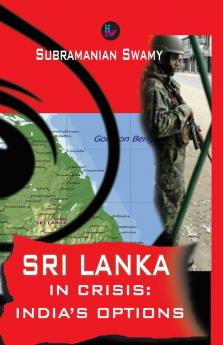English
Paperback
₹395
(All inclusive*)
Delivery Options
Please enter pincode to check delivery time.
*COD & Shipping Charges may apply on certain items.
Review final details at checkout.
Looking to place a bulk order? SUBMIT DETAILS
About The Book
Description
Author
The author in a refreshing original way dissects the Sri Lanka crisis into three parts. The first is a clear description of the problem which rejects the conventional formulation of the problem as ethnic religious or linguistic. The author suggests on the basis of extensive research that Tamils and Sinhalas are different only in their historical interaction with British colonialists. Otherwise in ethnicity language and religion they are of the same family. Due to the British early familiarity with Tamils in India the Sri Lanka Tamils found easy access to the British colonialists while the landed gentry and farming community of Sinhala did not. Hence the Tamils got ahead in English education and professions and a big gap developed between the two communities. The problem arose because the Sinhalas who were the majority upon obtaining Independence from British rule tried to close this gap by crude reverse discrimination policies and thus antagonizing the Tamils. Not finding a democratic way out being easily outvoted in an unitary Constitution the Tamils became captive to violent organizations. The LTTE emerged out of that frustration. But the LTTE became terrorist and soon an albatross. Second the author argues that the only viable solution to the crisis is devolution of state power which means the replacement of the present unitary Constitution with a devolved federal-type Constitution. This the Sinhala majority is unreasonably opposed to implementing soon. India has a responsibility to persuade the Sinhala majority to urgently consider this solution. Thirdly the author states that because the LTTE is an anti-Indian terrorist outfit which assassinated Rajiv Gandhi hence India has to regard the LTTE as part of the problem and definitely not a part of the solution. If Sri Lanka adopts a federal- type Constitution upfront then India will have to intervene on behalf of the Sri Lanka government and use its vast military capability to fix the LTTE and decisively end the menace it represents.
Delivery Options
Please enter pincode to check delivery time.
*COD & Shipping Charges may apply on certain items.
Review final details at checkout.
Details
ISBN 13
9789388409179
Publication Date
-01-01-2007
Pages
-180
Weight
-219 grams
Dimensions
-140x216x10.25 mm








